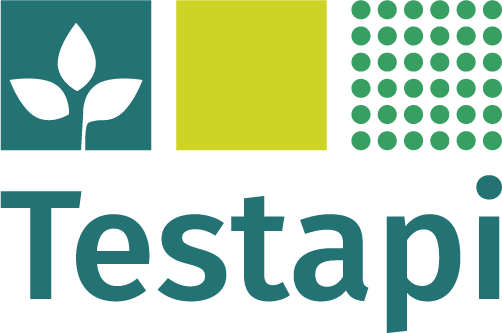Testapi ecotox studies
Testapi conducts field and laboratory studies on pollinators since 1992, mainly on honeybee (Apis mellifera), bumblebees (Bombus terrestris) and solitary bees (Osmia cornuta).
By extension, studies are performed on residue levels in bee products and on beneficials in vineyard, orchards and arable crops.
In other activities, Testapi develops research studies on pollinic fallows as well as the fight against varroa, against Nosema... in the way of improvement in the pollinator area. Testapi also performs impact studies on predatory mites and soil mesocosm in fields (arable crop, vineyards, orchards, greenhouses).
Field and GLP laboratory studies
Testapi runs the following studies:
Testapi studies are GLP compliant.
Methods and guidelines development
Specialized in bee topics, member of French National Group Bees of C.E.B. since 1994 and taking part to methodologic work of EPPO in ICPBR since 1998, Testapi is involved in regulatory and method development.
In collaboration with professionals (sanitary, veterinary...), Testapi participates in the validation of experimental protocols (ICPPR / EPPO / EOCD) and public presentations of common results.
Some of these methodologies became official already (bee brood OECD237 & 239, chronic LD50) and some other are still under development, specific of our know-how about bee trials.
- Honeybee homing flight: As part of a European ring test since 2015, Testapi develops homing flight studies using microchips on forager bee thorax.
- Solitary bees: As part of a European ring test since 2015, Testapi develops toxicity studies on Osmia, assessing effects on mating, egg deposit, foraging and brood development in semi-field conditions.
- Bumblebees: As part of a European ring test since 2014, Testapi develops laboratory studies on bumblebees.
- Chronic toxicity studies: As part of a European ring test since 2014, Testapi improves the chronic toxicity tests on honeybees.
- In partnership with public research (INRA, CNRS) and private laboratories, Testapi has developed know-how in sampling for residue analysis in apiarist matrices (flowers, pollen, terpens, bees, and nectar, honey, wax...).
- Brood tests under tunnels or field, with brood indicators calculation
- Impact of seed dressing dust to bees
- Re-entry studies
- Foraging behavior under insect-proof tunnels
- Impact of treated nets in IPM (Integrated Pest Management)
- Bumblebee tests on phacelia plots and in laboratory controlled conditions
- Tests on solitary bees (Osmia cornuta) in laboratory and semi-field conditions
- Feeding studies to determine the effects of feeding solutions on bees and colonies. Studies performed in-vitro, in hives and in apiaries
- Pollen and Nectar residue studies
Consultancy
Testapi can advise on registration issues linked to pollinators. Based on your objectives, Testapi defines of your needs and proposes fitted tests.
In collaboration with professionals (sanitary, veterinary...), Testapi participates in the validation of experimental protocols (ICPBR / EPPO / EOCD) and public presentations of results.
Recognized expert, Testapi can act as outside expert in disputes regarding bee loses: procedures, contacts, samplings...
Training
Testapi is officially recognized as a training center in the following cores of expertise: ecotoxicology and beekeeping, GLP bee experimentation, bee food resources (special fallows for bees) and can provide tailor-made specific training sessions.

